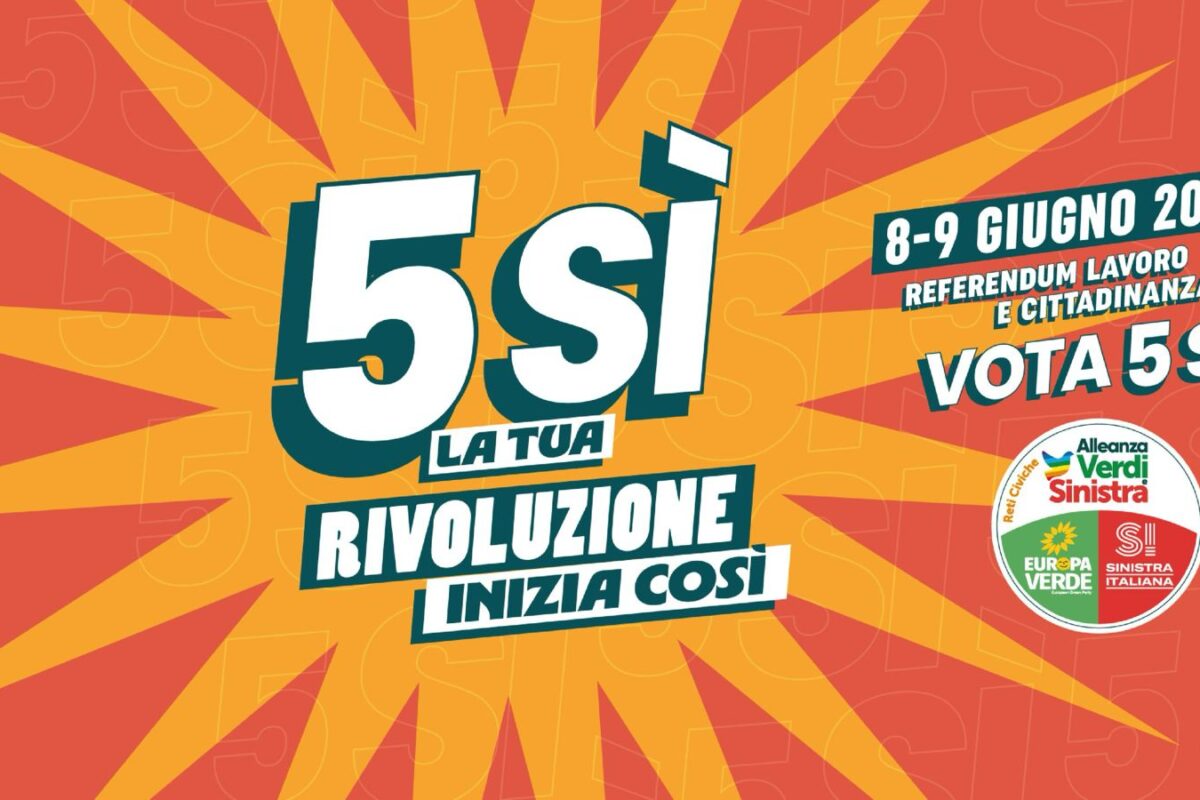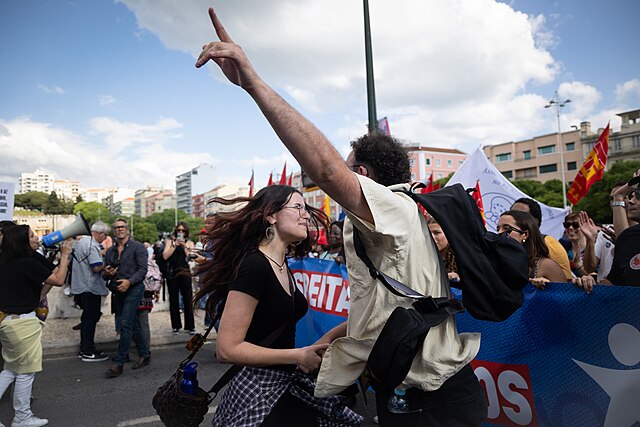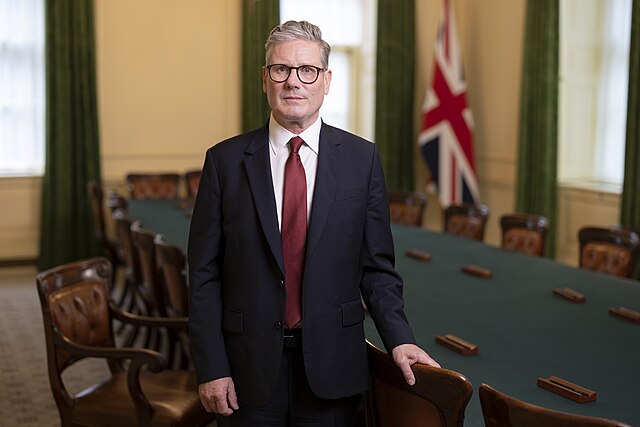Last Sunday, July 23rd, General Elections were held in Spain. The media, the polls (with a couple of exceptions) and even the prevailing mood suggested that the conservative Partido Popular (PP) and the extreme right VOX would get more than 176 seats, the number needed for an absolute majority in parliament. Yes, in Spain, the right wing is able to make a pact with the extreme right without any problems. We have seen this after the regional and municipal elections of May 28. They govern together in Extremadura, Castilla y León (since 2022), Valencia and the Balearic Islands, among others.
At 9 pm the two main pollsters, Sigma Dos and GAD3, presented their exit polls. According to Sigma Dos, the right wing could miss out on government by a very small margin, while GAD3 considered an absolute majority for the Right to be a certainty. Cuca Gamarra, PP spokesperson, went to the media to celebrate victory. The counting was quick. With approximately 70% of the vote counted, the social-democratic PSOE were set to win the elections. Later, the PP gained ground to gain slightly more votes than the PSOE (33,05% vs. 31,70%). Due to the Spanish provincial electoral system, the PP have 14 more seats in the Spanish parliament. There was also a fight for the third position between VOX and Sumar (the left-wing coalition of 15 parties, including Podemos, Izquierda Unida, Más País and Comuns). VOX ultimately gained third place with 0.08% more votes (12,39% vs. 12,31%) and two more seats.
The right wing cannot govern, even with the support of the Navarrese UPN, with whom they would have a total of 170 seats: 136 PP (up 47 since 2019), 33 VOX (-19) and 1 UPN (-1). The government coalition of PSOE and Sumar won 153 seats: 122 PSOE (+2) and 31 Sumar (-7). However, for a pact to support the Government, it is quite likely that the Basque left of Bildu (6, +1), the Catalan left of ERC (7, -6), the Basque Christian Democrats of PNV (5, -1) and the Galician left of BNG (1, =) can be counted on for a total of 172. It remains to be seen what the Canarian nationalists of Coalición Canaria (1, =) and, above all, the Catalan nationalists of Junts (7, -1) will do. With the distribution of seats on Sunday, an abstention by Junts would allow Pedro Sánchez’s government to be maintained.
The vote of Spaniards abroad, counted on Friday 29th, gave one last surprise. The PP in Madrid won 1 seat from the PSOE and left the balance at 171 to 171. Junts would have to support the government of Sanchez to be able to govern. If they abstained and Coalición Canaria supported the right, PP and VOX would govern. Some other parties are no longer in parliament. This includes the liberal-conservative Ciudadanos (who decided not to run), the Catalan left-wing CUP, the regionalists of Cantabria PRC, the Asturian regionalists Foro, the provincialists Teruel Existe, and the Catalan bourgeois party PdeCat.
Relief and contained breathing define the feeling in the Spanish left. It is difficult for the right and the extreme right to govern, but it is difficult for the left to do so as well. New elections cannot be discarded. Sumar, as a coalition of 15 parties, has lost 7 deputies and has not reached its goal of matching the 38 deputies it had in 2019.Instead they were squeezed by a campaign that was polarized between PP and PSOE. We could simply rejoice at the far right VOX losing 19 seats – countering the European trend of far right growth – but we should not be complacent.
Sumar is an invention created at full speed, with disputes and unclosed wounds between the members that compose it. In particular, there are disagreements around the integration of Podemos in the lists, which left out heavyweights of the party such as Irene Montero, Pablo Echenique or Rafael Mayoral. The leadership of Podemos and its media channel Canal Red, led by Pablo Iglesias, expressed their disagreement with the construction of Sumar from the beginning and there has been a feeling that, although Podemos’ militants were working hard, the leadership was not being completely honest.
Sumar has not been built democratically, that is a fact. Yes, many people have participated in the construction of its program, but this has in a rather dirigiste way led by the candidate Yolanda Díaz and her closest circle. The program is essentially social-democratic with some left-wing tints, especially around labour and ecology. However, the fact that the Spanish Greens are of part Sumar, makes, for example, the international policy ambiguous. Nevertheless, it must be recognized that the Greens of southern Europe are not comparable to the German Greens and have a more eco-socialist tradition behind them.
Sumar has gained presence in the electoral campaign, when it has expressed its differences with the PSOE. In the electoral debate, although Yolanda Díaz made clear her intention of governing with Pedro Sánchez, she did point out some points of difference, especially regardinf housing, migration and energy. Pedro Sánchez’s reaction was to say: “well, but we must have our feet on the ground”. That sentence reminds us why, even if there are coalition governments, a strong Left is necessary with a program of democratic rupture (and not just looking for pacts with the social democrats).
If the Left is weak or silent, the PSOE will apply the same economic policies as the PP, with a social facelift. But it is also important that Podemos and Izquierda Unida (with the Communist Party of Spain inside IU) remain within within Sumar. If not, the presence of the Greens (represented mainly by Ada Colau’s Comuns and Errejón’s Más País) can turn the Sumar project towards a more social democratic or social-liberal program with ecological overtones.
The questions that remain open to us are: will Sumar still exist in four years from now? What will Sumar be, a party, a coalition, a party roundtable? How will Sumar be built in a democratic way? For that, moment there are no answers, but this discussion cannot be delayed.
Jaime will be kicking off a discussion about the Spanish elections and the growth of the Far Right in Europe at the Berlin LINKE Internationals organising meeting on Monday, 7th August at Links*44, Schierker Str. 26. The meeting starts at 7pm and the discussion should start around 7.30pm. Everyone is welcome to join




